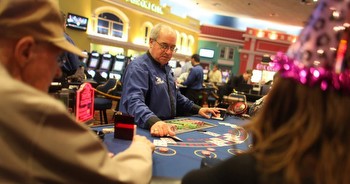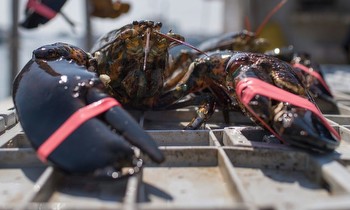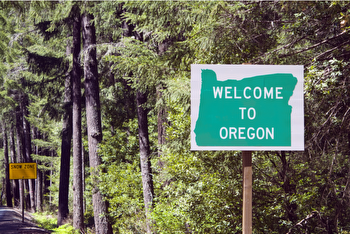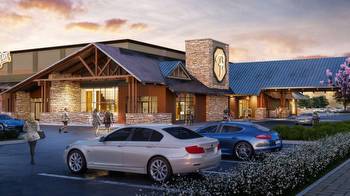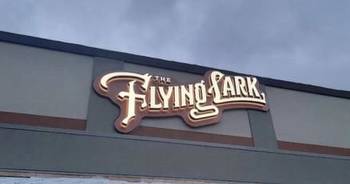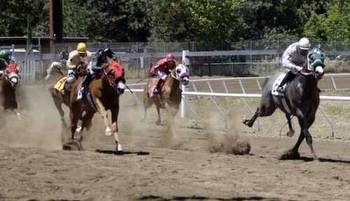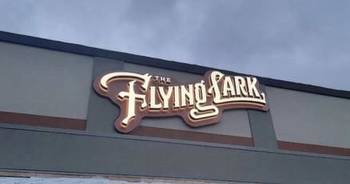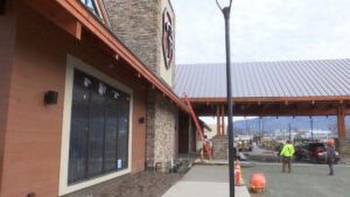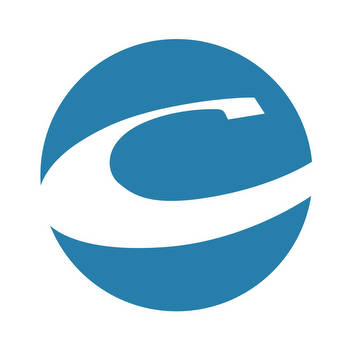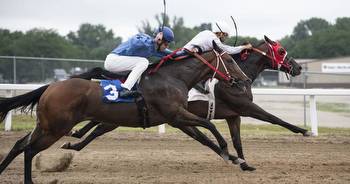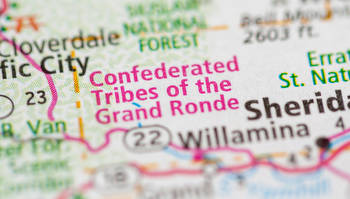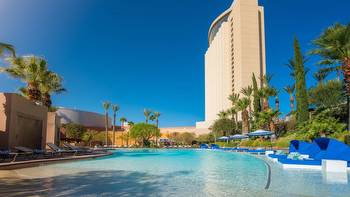Tribes ask governor to scrutinize Grants Pass gambling center
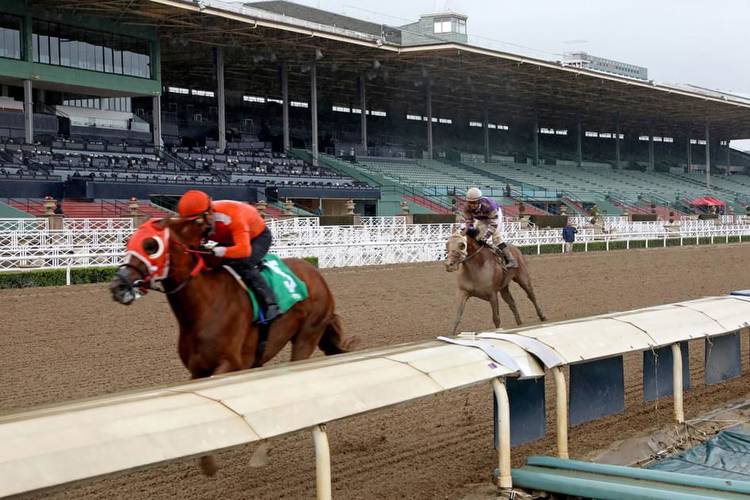
Six Native American tribes and other power players in Salem called this week on Gov. Kate Brown and other state political leaders to launch a thorough review of Dutch Bros founder Travis Boersma’s plan to open a gambling entertainment center in his hometown of Grants Pass.
They argue that Boersma’s planned Flying Lark will fundamentally change gambling in Oregon with little if any formal review. Consultants hired by opponents contend the Flying Lark will be the first casino allowed off tribal lands. It will lure business away from tribal casinos and the Oregon State Lottery, their analysis found, and could lead to more gambling venues at other tracks in the state.
There are a handful of other horse racing tracks, in Tillamook, Prineville and other small towns around the state. None operates commercially.
Boersma, a newly minted billionaire since the initial public offering of Dutch Bros stock last month, is expected to soon submit his application to state regulators to build the entertainment center adjacent to his Grants Pass Downs horse racetrack.
The building’s centerpiece will be 250 gambling terminals that resemble slot machines — but which actually allow players to bet on horse races that occurred years earlier, with the names and locations obscured.
“All of a sudden, it’s like, has the state’s prohibition on casinos been waived?” asked Justin Martin, a lobbyist and member of the Grand Ronde tribe, “We played under one set of rules. We invested in our facilities in rural Oregon based on those rules. And now it looks like the rules are changing.”
Boersma has poured his coffee fortune into a grand plan to bring horse racing back to Oregon.
But horse racing is a sport in decline. Portland Meadows — then the state’s only commercial racing track — shut down in 2019.
Most of the track operators in the country have augmented their races with casino-like gambling venues adjacent to tracks. Boersma has said his operation won’t work without the revenue from the Flying Lark.
Boersma and his team offered a study of their own that analyzed the economic upside offered by Grants Pass Downs and the Flying Lark, which found the two venues would generate more than $10.7 billion in spending in Southern Oregon over a decade of operation.
“We are committed to paying a living wage in Southern Oregon, which will have nothing but a positive impact in peoples’ lives,” said Mike Thiessen, president of the Flying Lark.
Casino-style gambling is normally allowed only on tribal lands. One exception to that law is horse racing, where betting on races has always occurred. Track operators in some states got clearance to build large casinos. In states where casinos are restricted, though, the industry developed so-called “historic horse racing” machines that helped qualify for the historic exception granted to the track owners.
Before it closed, Portland Meadows had more than 100 historic horse racing machines.
Critics argue that the machines have evolved to the point that any correlation to a horse race is difficult to detect.
“For all intents and purposes, an HHR is a video slot machine,” said Robert Whelan, an economist with ECONorthwest who authored the study commissioned by the tribes. “Gamblers insert money, select an amount to bet, press a button, and watch a brief animated display. Once the display stops, the gambler learns if they won or lost their bet.”
The proposal has also drawn opposition from advocates for those with gambling problems and the Oregon Restaurant and Lodging Association, which represents retailers and restaurateurs who profit from Oregon State Lottery games.
The coalition also is not happy with the Oregon Racing Commission, which is the state’s lead regulator in this case. The public needs to know “whether the current state regulatory bodies are adequately equipped and qualified to regulate this new industry,” the tribes stated in their letter.
The racing commission is a tiny state agency that describes its mission as regulating racing and on- and off-track wagering “for the good of the horses, the horsemen and women, the bettors, the licensees and the citizenry.”
The Oregon commission has quietly become the go-to licensing agency for some of the largest gambling companies in the country. Twin Spires, the off-track operation of Churchill Downs, which operates the famed track in Kentucky, is licensed in Oregon, as is NYRA Bets LLC, which is affiliated with the company that operates Saratoga and several other famous horse tracks.
Collectively, these Oregon-licensed companies did more than $3.5 billion in betting volume in the first half of 2021.
The state agency has also recently attracted the ire of an animal rights group. Grey2k USA in late September asked Attorney General Ellen Rosenblum and Secretary of State Shemia Fagan to review the racing commission’s practices.
The group opposes dog-racing, which they argue is cruel to greyhounds. Several of the big gambling operations licensed by Oregon allow bets on dog-racing in addition to horse racing.
Grey2k USA did not address the Flying Lark question. It argues that the racing commission’s licensees are knowingly violating the commission’s own rules concerning who is allowed to place a dog-racing bet.
The commission directs individual gambling licensees to respect the laws of other states. Forty-one of the 50 states have outlawed dog-racing. And yet, Oregon licensees routinely take bets from customers in states that have banned them.
The animal welfare group had several individuals from states that have banned dog racing place bets. They did so without any difficulty, it claims.
“Greyhound racing is dead or dying…. It’s where cockfighting was a couple decades ago,” said Cary Thiel, executive director of Gray2k. “But the Oregon Racing Commission is propping up this dying industry. And it’s breaking its own rules in the process.”
As for the governor, she has indicated in the past that she will defer to the racing commission in the final Flying Lark decision.
Jack McGrail, executive director of the racing commission, did not return phone calls this week.
The opponents hope their latest challenge will get a better reception than they got in the last session of the Oregon Legislature. Lawmakers gave the tribes’ proposal for a high-level review of gambling in the state a thumbs down.
Plus, legislators lowered the Flying Lark’s taxes.
It passed a bill in the last session that allowed the Flying Lark to pay a fixed rate in taxes rather than a percentage of revenue. The tribes’ researchers predict that change effectively lowered the tax bill from just over $2 million to $470,000 a year.









